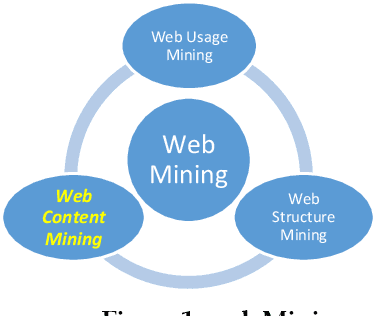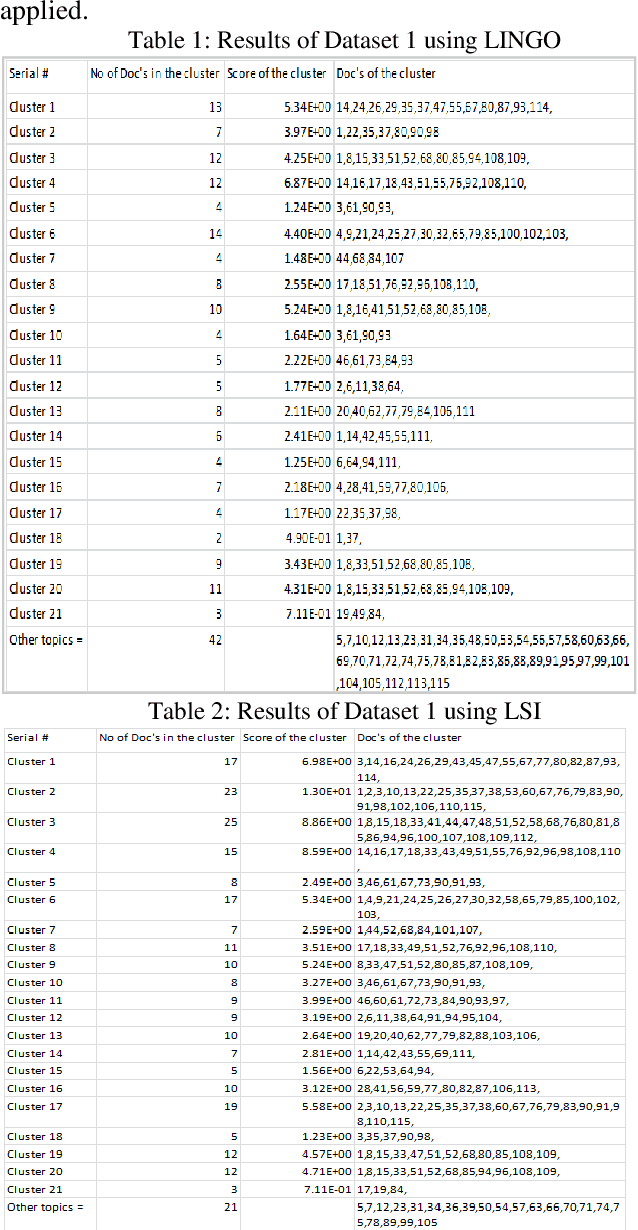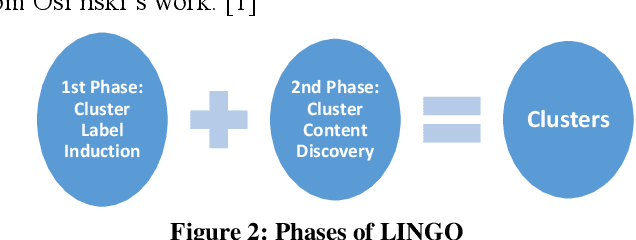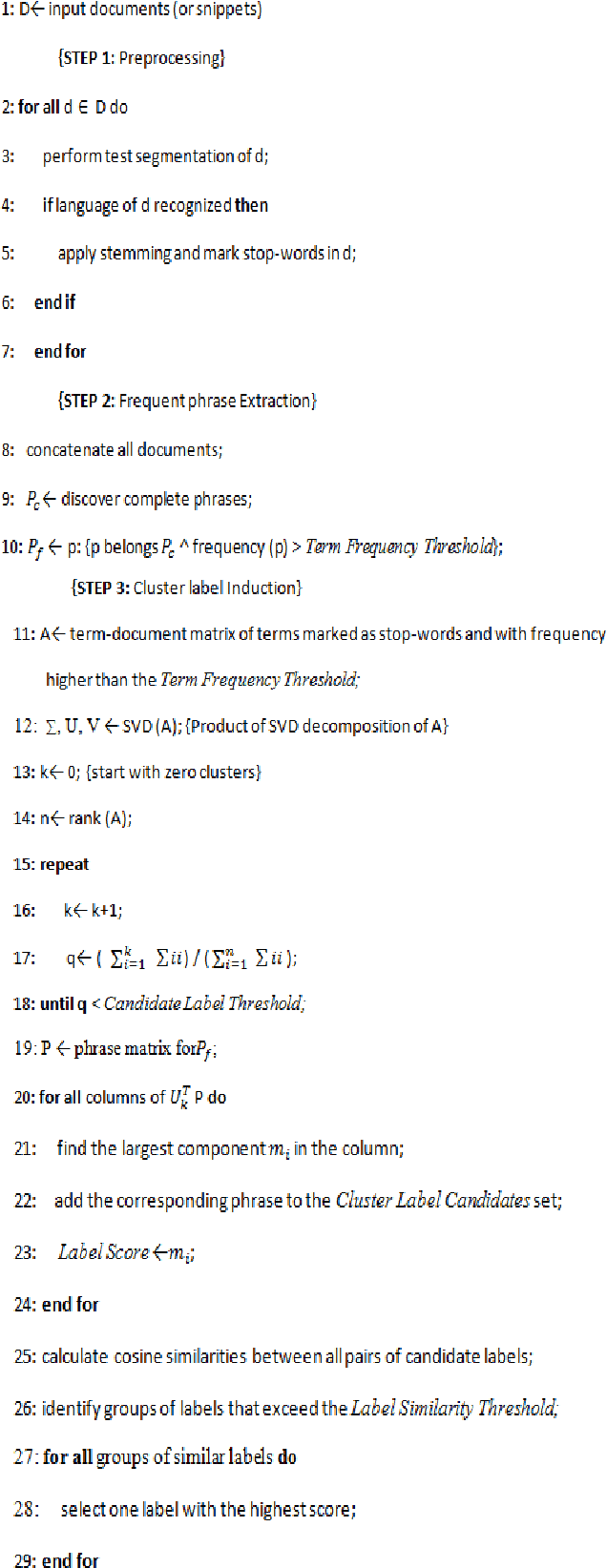Text Mining Through Label Induction Grouping Algorithm Based Method
Paper and Code
Dec 15, 2021



The main focus of information retrieval methods is to provide accurate and efficient results which are cost-effective too. LINGO (Label Induction Grouping Algorithm) is a clustering algorithm that aims to provide search results in form of quality clusters but also has a few limitations. In this paper, our focus is based on achieving results that are more meaningful and improving the overall performance of the algorithm. LINGO works on two main steps; Cluster Label Induction by using Latent Semantic Indexing technique (LSI) and Cluster content discovery by using the Vector Space Model (VSM). As LINGO uses VSM in cluster content discovery, our task is to replace VSM with LSI for cluster content discovery and to analyze the feasibility of using LSI with Okapi BM25. The next task is to compare the results of a modified method with the LINGO original method. The research is applied to five different text-based data sets to get more reliable results for every method. Research results show that LINGO produces 40-50% better results when using LSI for content Discovery. From theoretical evidence using Okapi BM25 for scoring method in LSI (LSI+Okapi BM25) for cluster content discovery instead of VSM, also results in better clusters generation in terms of scalability and performance when compares to both VSM and LSI's Results.
 Add to Chrome
Add to Chrome Add to Firefox
Add to Firefox Add to Edge
Add to Edge